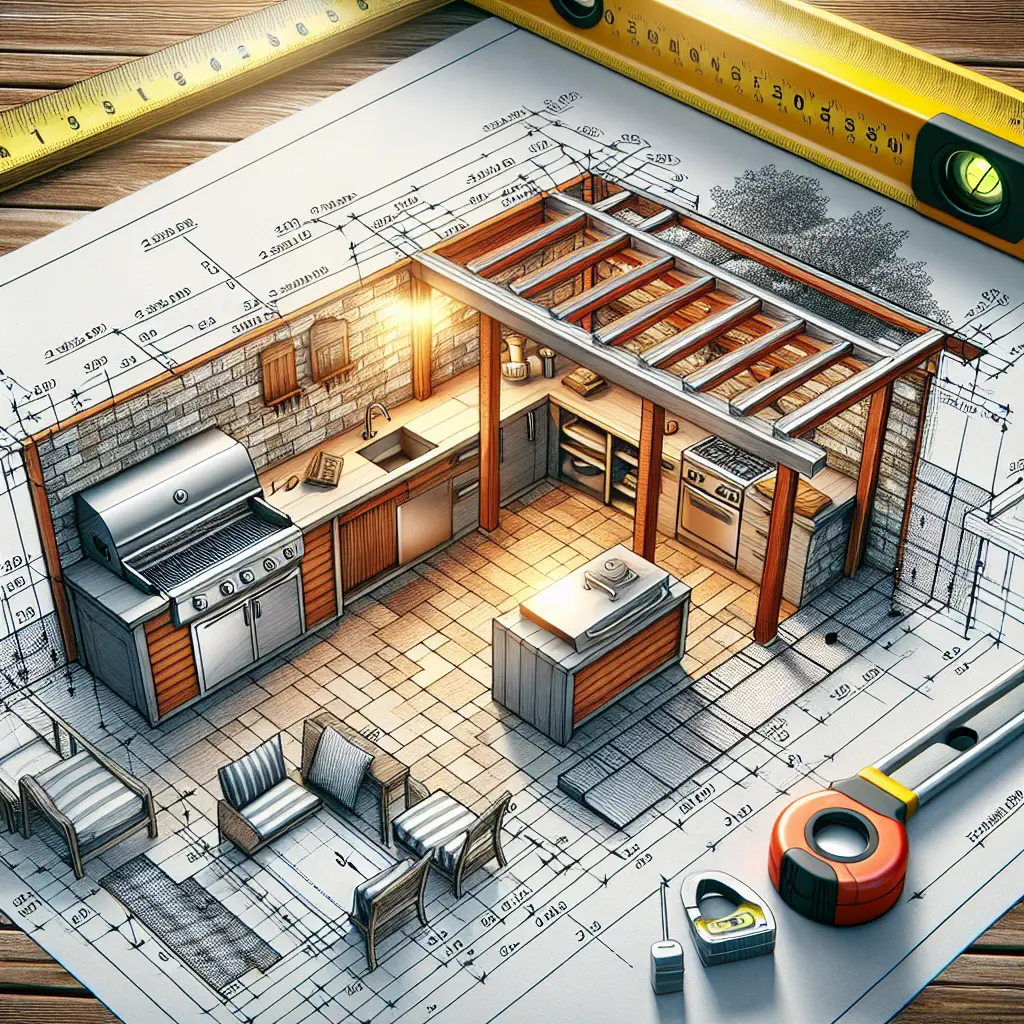Title: What Gauge Steel Studs for an Outdoor Kitchen?
Introduction
Creating an outdoor kitchen can add immense value and functionality to your backyard space, turning it into a hub for entertainment and relaxation. But, like any home improvement project, the devil is in the details. One such detail that’s crucial to the longevity and safety of your outdoor kitchen is the gauge of steel studs used in its construction. Selecting the right gauge steel ensures that your backyard culinary oasis stands strong against the elements and time.
Understanding Steel Gauge
The term ‘gauge’ refers to the thickness of the steel studs. It’s counterintuitive, but in the steel industry, the larger the number, the thinner the metal. For outdoor kitchen constructions, you must find a sweet spot between durability and workability.
Why Gauge Matters
Selecting the proper gauge for your outdoor kitchen is crucial for several reasons:
- Structural Integrity: A sturdier gauge means more weight-bearing capacity and resistance to dents and warping.
- Weather Resistance: Heavier gauge steel stands up better to harsh weather conditions.
- Longevity: Thicker steel can equate to a longer lifespan for your outdoor kitchen, making it a better investment in the long run.
Recommended Gauge for Outdoor Kitchens
When it comes to building an outdoor kitchen, the consensus among experts is that you should use at least 20-gauge steel studs for the framing. Lower gauge numbers, like 18 or 16, are even thicker and more robust, which may be necessary depending on the design specifics and the climate you live in.
Furthermore, The Metal Construction Association recommends that, for exterior structural applications, heavier gauge studs provide better performance. A heavier gauge ensures that your kitchen will be able to support the weight of countertops, appliances, and the exterior finish without concern.
Understanding Corrosion Resistance
In addition to gauge, it’s important to note the type of steel you’re using. For outdoor kitchens, galvanized steel is a popular choice due to its corrosion-resistant properties. It’s coated with a layer of zinc, which protects the steel from moisture and prevents rust.
However, even with galvanized steel, you still need to choose the correct gauge. A gauge that’s too thin could compromise the integrity of the protective zinc layer over time, especially in coastal areas where salt can accelerate corrosion.
Maximizing Space and Budget
A common concern is the cost associated with thicker steel studs. It’s no secret that as the gauge number decreases, the price and weight increase. So, how can you balance budget constraints with the need for a robust outdoor kitchen?
One approach is to invest in areas where strength is paramount – such as the base structure – while using a higher gauge steel in less critical areas. Additionally, consider simplified designs that require less material without compromising on the overall integrity of the kitchen.
Here’s a tip: Keep an eye out during sales on materials at Home Depot or other home improvement stores. Occasionally, they offer discounts on bulk purchases or specific construction materials, allowing you to get the sturdier gauges at a more budget-friendly price.
Installation Considerations
When installing steel studs for an outdoor kitchen, there are several things to keep in mind:
- Use the appropriate tools: A steel stud cutter is better than a traditional saw, as it won’t leave behind sharp edges.
- Secure fastening: Use screws designed for steel studs to ensure strong connections.
- Expert advice: If you’re uncertain about installation or structural design, consult with a structural engineer or a professional with experience in steel framing.
Conclusion
Choosing the right gauge for your steel studs is a fundamental step in the construction of a trustworthy outdoor kitchen that will last for years. By opting for 20-gauge or thicker, considering corrosion-resistant materials like galvanized steel, and balancing cost concerns with structural needs, you’ll be well on your way to creating an al fresco cooking space that’s both sturdy and stylish.
Remember, an outdoor kitchen is not just a place to grill burgers; it’s an investment in your home and a sanctuary for making memories with friends and family. By attending to the fine details of its construction now, you ensure many happy moments down the line, without the worry of structural issues interrupting your outdoor entertainment.
In summary, the right materials, when chosen wisely, pave the way for the longevity and enjoyment of your backyard oasis. Happy building!

